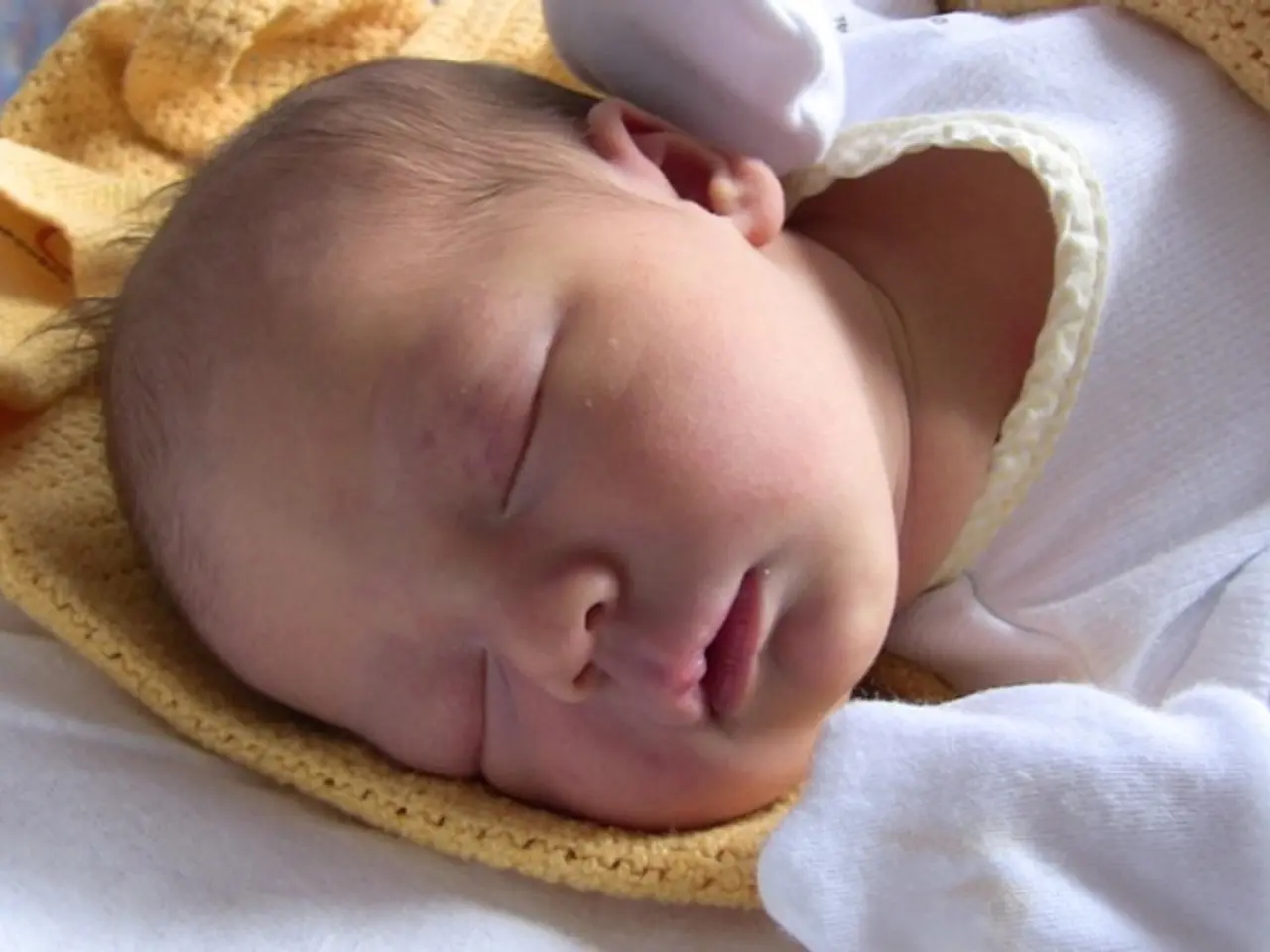Babies' Fabric Softeners: Essential Facts and Insights
In the world of laundry, taking care of baby clothes requires a gentle touch. Here's a guide to help you choose the right fabric conditioner for your little one's delicate garments.
When it comes to baby clothes, maintaining softness and comfort is of utmost importance. Fabric conditioners play a crucial role in this, as they keep the cloth fibres smooth, making clothes feel gentle to the touch. But, it's essential to choose a baby-safe fabric conditioner to ensure your baby's sensitive skin stays protected.
To make the best use of fabric conditioner, it's important to prepare your clothes properly before washing. Wipe off clumpy stains, rinse stains immediately in cold water, and add conditioner in the designated compartment during machine washing or manually add it towards the end of the washing cycle.
When selecting a fabric conditioner for baby clothes, prioritise products that are hypoallergenic and dermatologically tested. These formulas are safe and gentle on sensitive baby skin prone to eczema or allergies. Opt for products that are free from harsh chemicals such as synthetic fragrances, dyes, phosphates, parabens, or phthalates.
Fragrance-free or very mild, natural fragrances are ideal to avoid sensory irritation. Look for products with plant-based or naturally derived ingredients that clean and soften fabrics gently, preserving fabric integrity without leaving harmful residues.
Reputable bodies like EWG VERIFIED®, PETA, or IFRA certify these products for vegan, cruelty-free, and hypoallergenic standards. Ensure the conditioner is easy to rinse out, as residues left in fabric can irritate the baby’s delicate skin.
Avoid fabric softeners with strong fragrances or chemical additives, as these can trigger eczema or other skin sensitivities in infants.
Additional tips for washing infant clothes safely include using detergents and conditioners designed for babies, washing in cool or warm water on gentle cycles, and avoiding dryer sheets or harsh stain removers that may contain allergens.
When hand-washing, mix a small amount of conditioner in a bucket full of water and ensure it has dissolved well.
Remember, it's important to follow the instructions on the clothes' tag when washing. Clothes should be run through the rinse cycle twice during washing, and baby's clothes should not be mixed in with the rest of the family's laundry in the washing machine.
Cloth nappies should be disinfected after washing, and new clothes should be washed before dressing the baby in them. Bleach should not be used to clean baby's white clothes, and non-bio detergents, which do not contain enzymes, are suitable for washing baby clothes as enzymes can trigger allergies on sensitive skin.
In summary, the best baby-safe fabric conditioners are those that combine gentle, transparent, and non-toxic formulations, dermatological testing, and certifications while being free of dyes and harsh additives to fully protect delicate infant skin.
By extending the focus beyond laundry, prioritising hypoallergenic and dermatologically tested fabric conditioners is a vital aspect of parenting, as it ensures a soft and gentle lifestyle not only for cleaning baby clothes, but also home-and-garden textiles that come into contact with the baby's skin. When choosing products for baby items, always verify they are free from harsh chemicals such as synthetic fragrances, dyes, phosphates, parabens, or phthalates to maintain a safe and comfortable environment for the baby.




